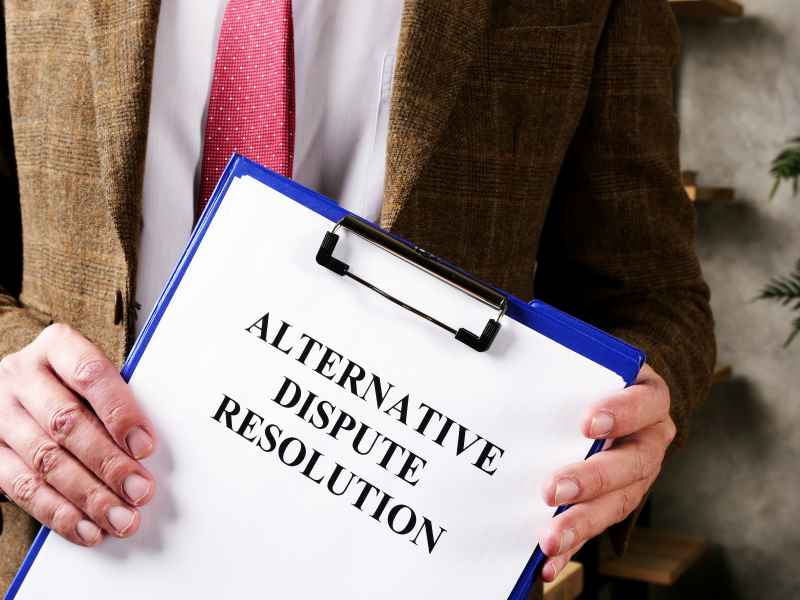|
Property damage, particularly the kind of severe damage that can occur during Florida's hurricane season -- can be devastating. High winds, floods, extreme rain, hail, all of these can cause significant damage to your property. Making an insurance claim is a significant step towards getting back on track.
At first, you might find yourself dealing with the immediate aftermath of the storm: salvaging as much as you can, arranging repairs, perhaps even seeking alternative accommodations. Coping with storm damage can be extremely stressful, particularly if you find yourself unable to return to your home for some time afterward. Even so, it's important not to put off contacting your insurance company. While you might have more pressing concerns in the aftermath of a major storm, it's essential to notify your insurance company and put in your claim in a timely manner. Time Limits Your insurance policy is designed to cover you in the unfortunate event that you're affected by property damage or loss. It is a contractual agreement with the insurance provider. When you took out the policy, you agreed to be bound by its terms. Besides various other limitations and exclusions, your policy will contain multiple stipulations regarding claims, including a timeframe within which you must make a claim. Each policy is different and time frames vary between companies and even between the same company policies. If you do not put in your claim within the stated time limit, the insurance company can deny your claim. For this reason, it's crucial to check your policy and find out how long you have to make a claim. If your claim relates specifically to damage from storms or hurricanes, the timeframe of your request may also be affected by Florida's statutes. Under Florida's statute of limitations, you must give notice of a claim to your insurance company no more than three years after the windstorm or hurricane made landfall. For example, a claim relating to Hurricane Irma would have needed to be made before September 11, 2020. Even if your policy allows plenty of time to make a claim, it's a good move to contact your insurance company as soon as you can after the damage or loss occurs. The sooner you notify them that you're going to make a claim, the sooner they can begin processing it. You do not have to make a detailed claim right away, but you do have to provide them notice that damage has occurred and file your claim. When you contact your insurance company, make sure you have your policy number available and any relevant documents on hand. It's a good idea to document and make note of the date and time of the call and the person you talk to. If you are given a claim number, make a careful note of this too. Write down the broad details of what you were told, including any instructions you were given. If requested by the insurance company, you will need to submit a Proof of Loss Statement. This also needs to be completed within the stipulated timeframe. The Proof of Loss Statement is very important to your claim. It would be best to have a professional, such as a Public Insurance Adjuster help you with this. Time Limits for Insurance Companies There are also time restrictions that apply to insurance companies. These exist to ensure that your claim is processed on timely. In most cases, once you make your claim, your insurance company is bound to make a determination on your claim within 90 days. Suppose you're filing a property damage claim under your homeowner's insurance. In that case, the insurance company is obliged to provide you with a copy of the Homeowner's Claims Bill of Rights within 14 days of receiving notice of your claim. This document details the obligations of both parties under the terms of the insurance policy, including the time limits that you must both abide by. The amount of time that a claim takes can vary and depends on the claim’s size and complexity. Smaller claims may be agreed upon sooner than larger, more complicated claims involving significant damage or unique properties. Prevention is Better than Cure The better you prepare ahead of hurricane season, the easier any future insurance claims will be. You may also need to provide evidence of the property's condition before the damage. That's why it's important to get a detailed Pre-Storm Property Inspection before the Florida storm season begins. Having a qualified expert document your property in its undamaged state will make resolving insurance disputes much easier. An expert Pre-Storm Property Inspection will also spot potential weak points and areas in need of upgrade or repair. Showing that you undertook all reasonable steps to avoid damage to your property can also be helpful if there's a dispute. Coping with the aftermath of an insurance claim, especially a major storm, hurricane or flood is never easy. It's a stressful time and it's easy to let some things slide while you try to come to terms with the situation. By familiarizing yourself with the terms of your policy now, you'll be less likely to miss important deadlines if the worst happens.
0 Comments
Florida is well-known for being a hurricane hot spot, with an average of 14 hurricanes or big storms per year. This means that you need to be adequately prepared for storm season. As well as physical preparations, that means arranging a pre-storm inspection. An inspection is necessary to document the condition of your home, business, or rental property, helping you to plan for the hurricane season and to avoid future insurance disputes. To be sure that documentation is complete and thorough, you need the services of someone who understands the importance of a proper inspection. At Reliant, we have the expertise to provide you with the detailed documentation you need.
Documentation Perhaps the most important reason for a pre-storm inspection is to document your property's current condition. You'll need this kind of detailed independent evaluation in case you should have a property damage insurance claim down the road. Proactive Steps While possible weak spots and likely causes of future storm damage may be easy for the layperson to identify, this isn't always the case. With a detailed expert evaluation, you'll be able to identify the elements of your property that should be repaired, enhanced, or protected ahead of the storm season. This kind of proactive preparation can go a long way towards minimizing the impact of Florida's hurricanes and storms on your property. By correcting any pre-existing issues, you can get ahead of potential insurance disputes regarding pre-existing damages when you need to make a claim. Avoiding Disputes If the worst happens and you need to make an insurance claim for storm damage, you need to be well prepared. Suppose you are unable to present your insurance company with detailed and impartial evidence of your property's condition and value before the storm. In that case, it can be challenging to resolve insurance disputes in your favor. Without documentation, it can also be hard to prove that you've done everything you can to resolve pre-existing conditions and protect your property from storm damage, making insurance disputes more likely. Our Services:
Storm damage can be a major headache for any Florida property owner. We at Reliant can help you take some of the stress out of hurricane season with a full Pre-Storm Inspection Report. 3d Camera Inspection – A virtual experience and why it is important for your insurance claim!1/12/2021 When you make a property damage insurance claim, documenting that damage is very important early on in the claim. Not only is photographing and showing the damage important, but having a 3d virtual tour of your property is essential.
We have added the Matterport 3D Camera to our arsenal of tools for all our property inspections which provides an amazing 3D image of your damaged property that you can walk through with the click of a mouse. This amazing technology amplifies our ability to provide the extreme attention to detail that we provide for all our services. In today’s technological world, what better way to present your property damage to the insurance company than with a virtual tour of your property! This is an added bonus that we include with all our estimates of damage. Yesterday, we met with our client that has a two-story home with a complicated floor plan. Being able to provide this link to the insurance company and showing the damage in this capacity will certainly help settle their claim more efficiently. Not only can you walk through the home, but you can click on “tags” that we add to the floorplan that allows you to zoom in on damaged areas of the building. This eliminates any possibility that the insurance company “missed” an area that was damaged during their inspection or “wasn’t shown” a particular portion of the damage. We leave nothing to chance when presenting a claim to an insurance carrier. We are always searching for new ways to make sure that our clients get the very best representation for their property damage claims and make sure that they get paid everything they are entitled to. That’s why you can “Rely on Reliant!” The Difference Between an Insurance Claims Appraiser and an Insurance Claims UmpireWhen you make an insurance claim, you always hope that things will go smoothly. Ideally, you would file your claim, an insurance adjuster would inspect the damage and write an estimate for the cost of repairs. You would then receive the amount needed to repair your damaged property.
Unfortunately, it doesn't always work this way. An insurance adjuster may not always agree with the policyholder as to the value of the claim. Sometimes the amount offered by the insurance company might be significantly lower than what the policyholder making a claim might have expected. In some cases, your policy will have an alternative dispute resolution process where you can dispute the claim and try to get the insurance company to pay more for your damages. If there's a dispute over an insurance claim, there are various ways to resolve the situation. One way to move forward is to invoke the appraisal clause in the insurance policy. In this example, both the policyholder and the insurance company designate an individual to serve as their appraiser for the claim. Both appraisers meet at the property to inspect the damages and discuss the differences between the two estimates and try to come to an agreement. If they are unable to do so, a third party called an umpire, is called in to make a final decision and resolve the dispute. The umpire must be competent to make such a decision, with in-depth knowledge of property dispute resolutions, which relate to the kind of claim being disputed. The umpire must also be disinterested and impartial and not be connected in any way to either the insurance company or the policyholder who is making the claim. The insurance claims umpire will meet both appraisers at the property and listen to both of their positions on why they feel they are correct. The umpire will then render a decision which is binding and final. Both the policyholder and the insurance company have to accept the result. That is why it is important to choose an expert insurance claims appraiser, and if needed, an umpire who can make a fair claims settlement. We are Certified Insurance Appraisers and Umpires (CPIAU) and have the knowledge and expertise having handled many claims dispute resolutions throughout our careers. |
AuthorKaren Schiffmiller Archives
July 2024
Categories |








